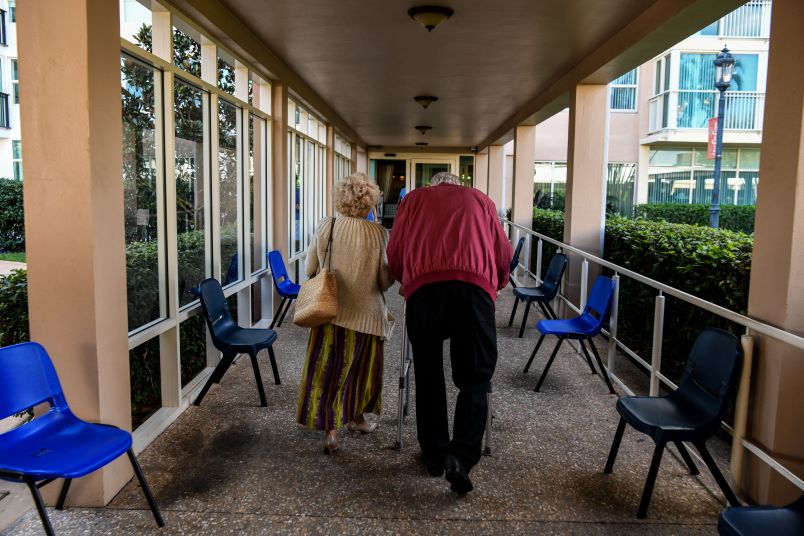WASHINGTON (AP) — Scam artists are preying on older people’s fears by peddling fake tests for the coronavirus to Medicare recipients, a federal law enforcement agency warned on Monday.
The Health and Human Services inspector general’s office said it’s seeing marketing schemes rapidly pivot to offering tests for COVID-19 and “Senior Care Packages” with hand sanitizer or even tout a vaccine, which doesn’t exist. Some marketers falsely claim that President Donald Trump has ordered that seniors get tested.
It’s all a trick to get personal information that can be used to bill federal and state health programs, said Christian Schrank, assistant inspector general for investigations.
“It’s a straight-up ruse to get your Medicare number or your Social Security number under the guise of having a test kit or a sanitary kit sent to you,” Schrank said. Often the caller will hang up as soon as that number is provided.
Low-income Medicaid recipients also are being targeted.
The sales pitches are coming via telemarketing calls, robocalls, social media posts, emails and door-to-door visits, Schrank explained.
As legitimate businesses close their doors and send workers home to comply with social distancing measures, fraud operators have ramped up recruiting for their call centers, Schrank said.
For seniors, the consequences can be long term. Health care fraud is one of the most prevalent forms of identity theft.
Once a person’s Medicare information is in the hands of fraudsters, it can be used repeatedly to bill for unwanted goods and services. That can create problems if a Medicare enrollee ever does need them.
Among the schemes reported to authorities:
— In Florida, seniors have been contacted by fraudsters claiming that Trump and Vice President Mike Pence have mandated they get tested and that their Medicare number is required.
— A scheme in the Midwest offers a “Senior Care Package” that includes hand sanitizer. “As we know, it’s very difficult for beneficiaries to get out to the store,” Schrank said. “At this time when seniors are searching for answers, these individuals are preying on their desire to speak with somebody.”
— Several online operations are offering coronavirus vaccines, when none has been developed and approved. “The first time you hear about a vaccine, it’s not going to be through an email or a telemarketing call,” Schrank said.
Federal and state law enforcement officials have set up a working group to share information on the quickly evolving scams and route leads to the agencies best equipped to investigate. The phone number for the HHS inspector general’s hotline is 800-HHS-TIPS, and the National Center for Disaster Fraud hotline is at 866-720-5721.
For most people, the coronavirus causes only mild or moderate symptoms, such as fever and cough. For some, especially older adults and people with existing health problems, it can cause more severe illness, including pneumonia. Worldwide, about 350,000 cases have been reported, and while most people recover in weeks, more than 15,000 have died.
Fraud against government health care programs is a pervasive problem that costs taxpayers tens of billions of dollars a year. The true extent is unknown.
Officials advise seniors who get fraudulent calls to just hang up the phone.
___
The Associated Press receives support for health and science coverage from the Howard Hughes Medical Institute’s Department of Science Education. The AP is solely responsible for all content.







So this is what Beavis and Butthead have been up to?
The acorns didn’t fall far from the Trump Stump…
Did someone say, “scam”?
That was my first thought too. And has anyone seen Jared lately?
“Now, who would do a thing like that?!?”
You know the telegrifters have been looking at this crisis as an opening for Jesus